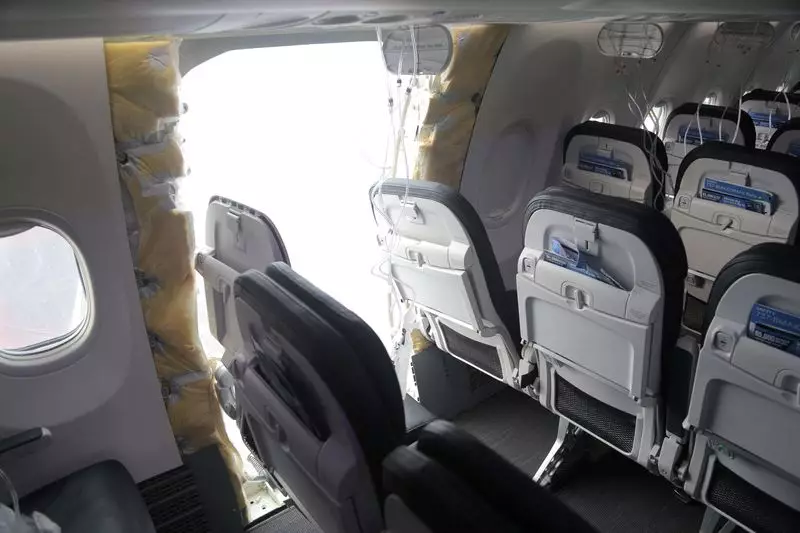Boeing has come under fire for failing to provide U.S. regulators with the names of its employees on the 737 MAX door team. This issue was brought to light during a Senate hearing where criticism was directed towards the aircraft manufacturer for not cooperating with the National Transportation Safety Board’s ongoing investigation into an Alaska Airlines 737 MAX 9 mid-air cabin door plug emergency. NTSB Chair Jennifer Homendy expressed frustration at the delayed response from Boeing in supplying the names of the 25 individuals who work on door plugs at a Boeing facility in Renton, Washington.
Despite Boeing’s claims that they had provided the NTSB with some employee names shortly after the incident, there was a significant delay in sharing the complete list with regulators. This lack of transparency and cooperation from the company raised concerns about the thoroughness of their internal investigations and safety procedures. The failure to document the removal of the door plug further complicated the situation, as it hindered the NTSB’s efforts to understand the events leading up to the mid-air emergency.
Senate Commerce Committee Chair Maria Cantwell emphasized the importance of holding Boeing accountable for its actions and ensuring that such oversights do not occur in the future. Cantwell’s call for Boeing CEO Dave Calhoun to testify at a future hearing underscored the seriousness of the situation and the need for clear communication between the company and regulators. The delay in providing crucial information to the NTSB highlighted the potential risks associated with inadequate oversight and documentation procedures within the aerospace industry.
The NTSB’s plans to conduct a multiple-day investigative hearing into the MAX 9 and obtain testimony from Boeing and other relevant parties indicated a deep concern for the safety of passengers and the integrity of the aviation industry. The inspections of other MAX 9 planes revealed no other missing bolts, but the focus remained on identifying the root causes of the mid-air incident and preventing similar occurrences in the future. The need for a comprehensive plan to address systemic quality-control issues within Boeing was underscored by Federal Aviation Administrator Mike Whitaker, signaling the importance of proactive measures to ensure passenger safety.
Boeing’s failure to promptly provide employee names to regulators reflects a broader issue of transparency and accountability within the aerospace industry. The incident involving the 737 MAX door team highlights the critical importance of thorough record-keeping and oversight in ensuring the safety of aircraft and passengers. Moving forward, it is essential for companies like Boeing to prioritize cooperation with regulatory agencies and implement robust quality-control measures to prevent such incidents from occurring again. The NTSB’s ongoing investigation serves as a reminder of the constant vigilance required to maintain the highest standards of safety in aviation.

